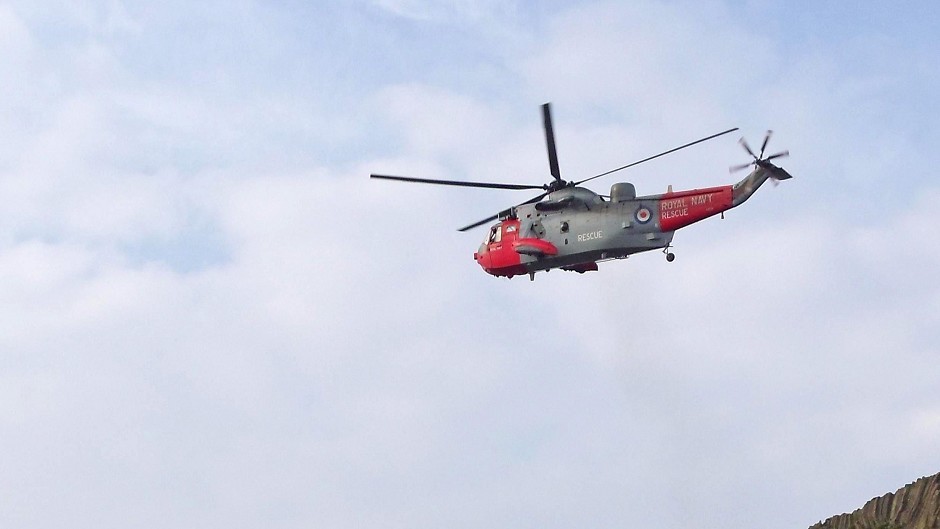Members of Shetland Islands Council’s planning committee have been advised to approve a proposal to retain the emergency helicopter landing pad at Clickimin on a permanent basis.
The Lerwick helipad, which has been in use between two grass pitches south of the leisure centre since March 2016, initially received temporary planning approval, but full permission was applied for in February.
The landing site is used by the coastguard helicopter and the ambulance service in situations where there is danger to patients’ life as it is in close proximity to Lerwick’s Gilbert Bain Hospital.
Four representations were received from local residents, all from South Lochside, against retaining the helipad permanently.
Among the concerns raised were the proximity to housing, as well as the new Anderson High School and halls of residence.
Residents also complained that helicopters landing caused a lack of sleep, exacerbated some health problems, were too loud and had caused damage to property.
A council report due to presented at Tuesday’s planning committee meeting, however, stressed that a balance has to be made “between a short term adverse impact on nearby residents and the long term benefits to those requiring emergency medical treatment of having such a facility in close proximity to a medical facility”.
Figures show that there were 40 landings at Clickimin between 12 March 2016 and 10 December 2017, which was lower than predicted in the original planning application.
There were 60 emergency landings at Tingwall Airport, five miles north of Lerwick, in the same time period and 22 at Sumburgh Airport.
Monitoring took place at the site, although it was confirmed that the current statutory nuisance law enforced by environmental health specifically excludes aviation noise.
However, if that statutory nuisance criteria was employed then the activity at the helipad would be “regarded as causing disturbance to local residents”.
The report on the planning application reiterated that the helipad should continue to be used solely for emergencies and not for routine transport.
